What you need to know about ID cards
Whether you back the looming ID system or not, here's what you need to know about government plans to create an identity database.


ID cards have come to the UK. So far, it's just for so-called foreign nationals, but if the government continues to have its way, by 2012 British citizens will be lining up to be fingerprinted.
The results of most polls on the subject seem to reflect the opinion of whoever commissioned the survey, suggesting more about modern polling standards than what we all really think about ID cards.
Still, there hasn't been a huge uproar or walk-outs or demonstrations. Are British people okay with identity cards and the connected massive database? Or are they simply unaware of what it all means?
One of the government's loudest critics has been lobby group NO2ID and it believes the latter. "What's happening will come as a huge shock to a lot of people," said general secretary Guy Herbert to IT PRO.
"It's very, very clear that the more people know, in our common experience, the more against it they tend to be," he said. "As public consciousness of the scheme has grown then the figures in favour have fallen."
He compared the issue to the poll tax, saying that once the letters hit peoples' doorsteps, the scheme became "hugely unpopular."
With that in mind, here's what we know about the ID card and registry scheme so far, based on Home Office press releases, briefing sessions, and websites and the same from their most vocal critic, NO2ID.
Get the ITPro daily newsletter
Sign up today and you will receive a free copy of our Future Focus 2025 report - the leading guidance on AI, cybersecurity and other IT challenges as per 700+ senior executives
One thing to note, however all of the legislation regarding the British ID card is not yet passed through parliament, so some of this is subject to change. In fact, the Home Office is holding a 12-week consultation on the draft legislation; if you want to push for change, details are available here.
Foreign nationals first, pleaseThe rollout is in several stages, and there are indeed two separate cards planned. The first is being released by the Borders Agency to foreign nationals; the second is being developed for British citizens by the Identity and Passport Services. Both bodies are part of the Home Office, and the cards will be essentially interoperable.
But what's a foreign national? That lovely term is what the government uses to describe anyone living in the UK under a visa so those people who come here to study, work or marry.
Jacqui Smith said earlier this month: "As identity cards begin rolling out, starting later this month with foreign nationals, we will quickly see that a single, convenient and secure way of proving who someone is will bring real benefits to this country."
The idea is that any foreigner wishing to work will have to show one of these cards although it is already a requirement to show a work permit or visa to be able to work at the moment.
At the time, Phil Booth, NO2ID's national coordinator made a fairly good point. "To suggest ID cards are somehow connected to immigration policy Jacqui Smith is deliberately engaging in populist bullying of the soft targets anonymous individuals seeking marriage visas or education those who have no choice but to keep quiet and comply. All resident foreigners is a different matter. When it comes round to fingerprinting Madonna and her family, say, such tactics will backfire."
Freelance journalist Nicole Kobie first started writing for ITPro in 2007, with bylines in New Scientist, Wired, PC Pro and many more.
Nicole the author of a book about the history of technology, The Long History of the Future.
-
 Bigger salaries, more burnout: Is the CISO role in crisis?
Bigger salaries, more burnout: Is the CISO role in crisis?In-depth CISOs are more stressed than ever before – but why is this and what can be done?
By Kate O'Flaherty Published
-
 Cheap cyber crime kits can be bought on the dark web for less than $25
Cheap cyber crime kits can be bought on the dark web for less than $25News Research from NordVPN shows phishing kits are now widely available on the dark web and via messaging apps like Telegram, and are often selling for less than $25.
By Emma Woollacott Published
-
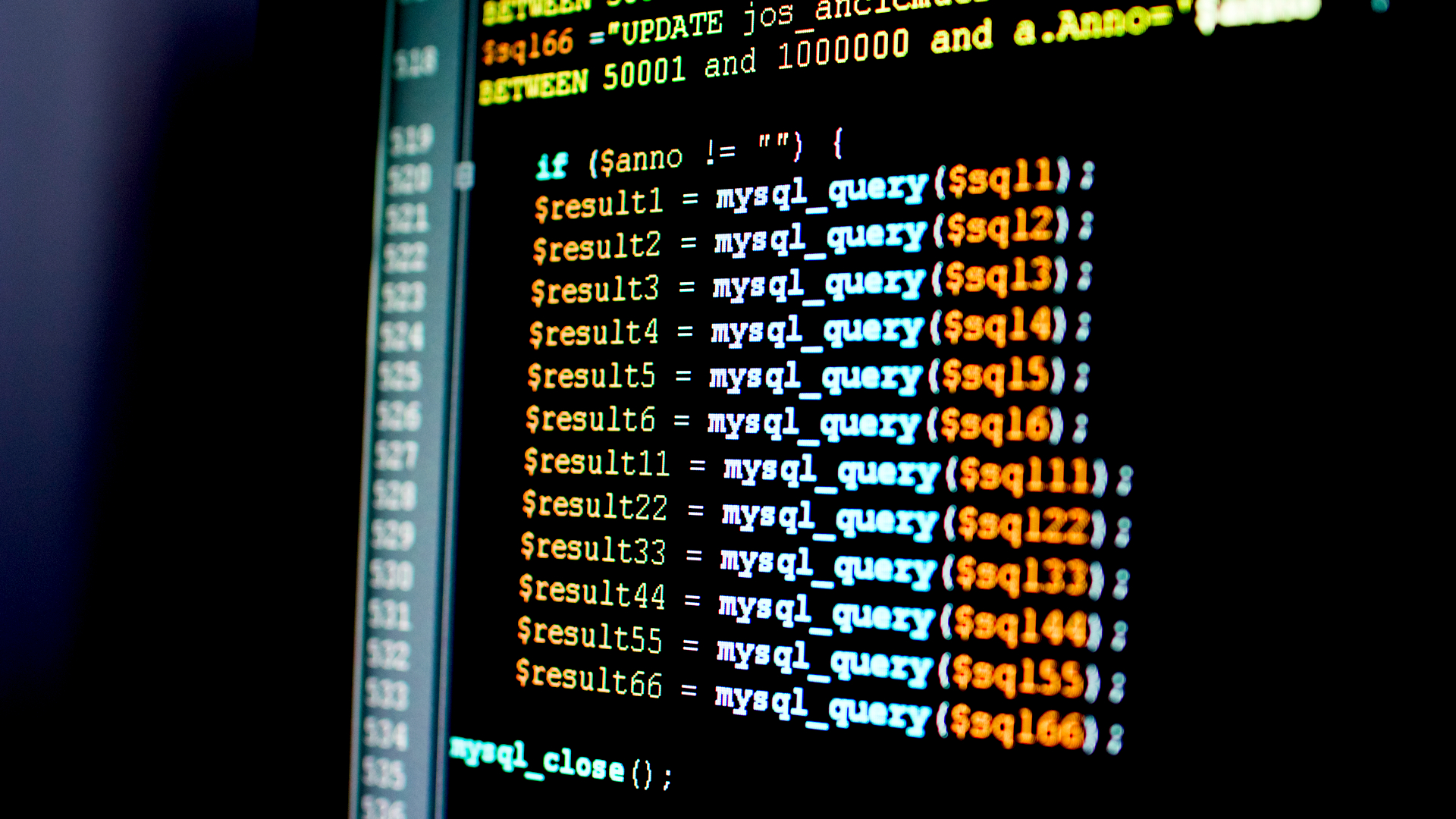 Datadog Database Monitoring extends to SQL Server and Azure database platforms
Datadog Database Monitoring extends to SQL Server and Azure database platformsNews The tool offers increased visibility into query-level metrics and detailed explanation plans
By Praharsha Anand Published
-
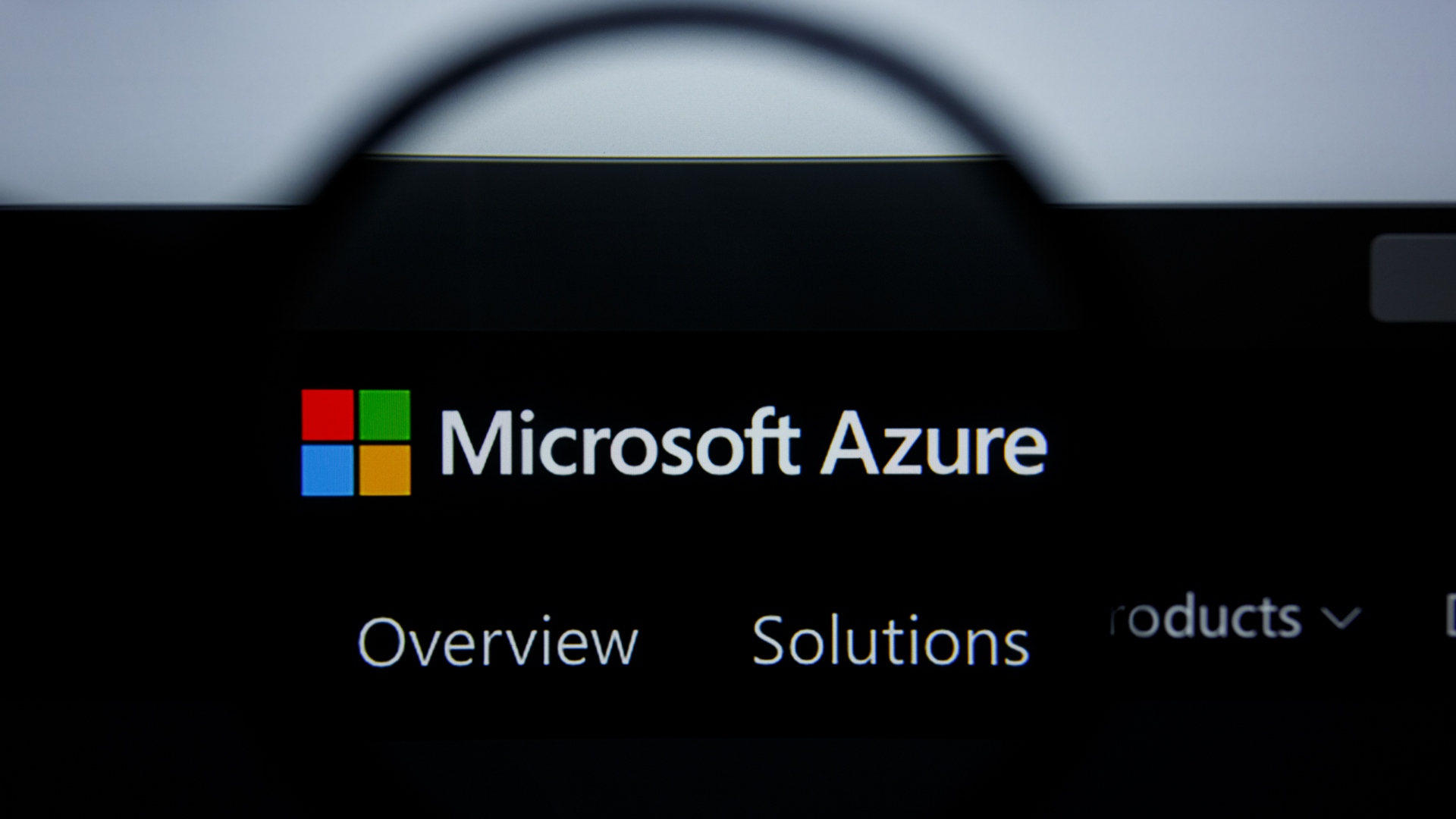 Oracle and Microsoft announce Oracle Database Service for Azure
Oracle and Microsoft announce Oracle Database Service for AzureNews Azure users can now easily provision, access, and monitor enterprise-grade Oracle Database services in Oracle Cloud Infrastructure
By Daniel Todd Published
-
 Elastic expands cloud collaboration with AWS
Elastic expands cloud collaboration with AWSNews Partnership aims to ease migration to Elastic Cloud on AWS, as well as simplify onboarding and drive go-to-market initiatives
By Daniel Todd Published
-
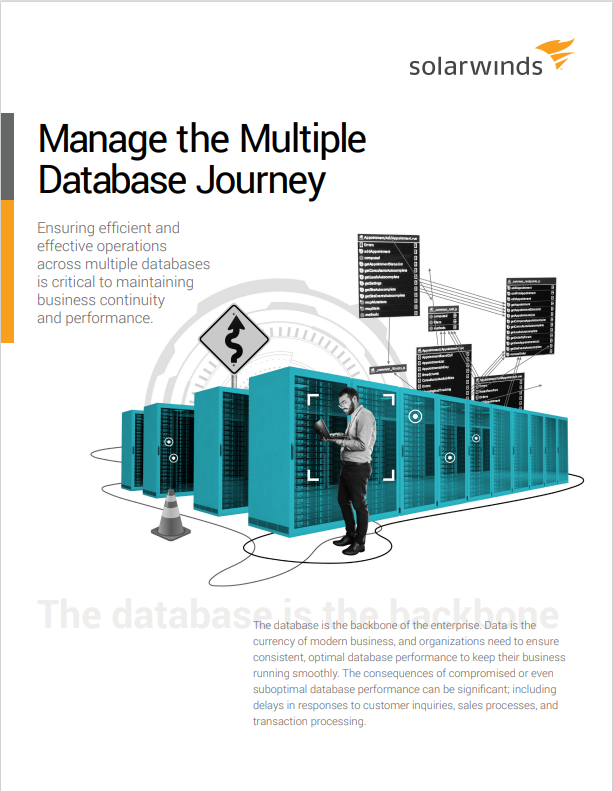 Manage the multiple database journey
Manage the multiple database journeyWhitepaper Ensuring efficient and effective operations across multiple databases
By ITPro Published
-
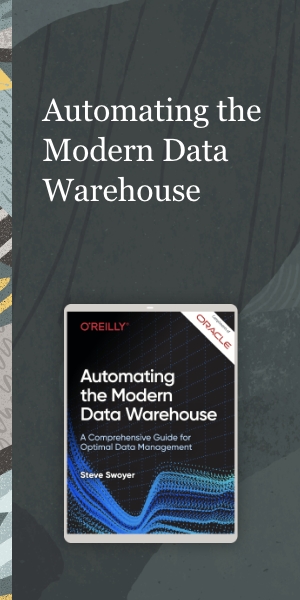 Automating the modern data warehouse
Automating the modern data warehouseWhitepaper Freedom from constraints on your data
By ITPro Published
-
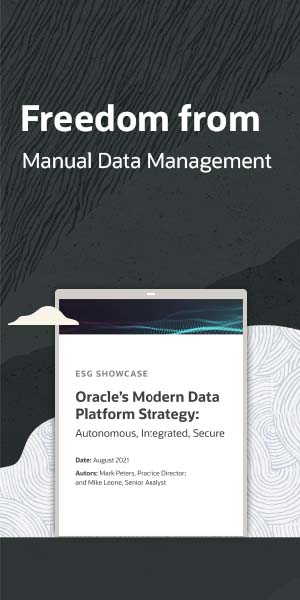 Freedom from manual data management
Freedom from manual data managementWhitepaper Build a data-driven future with Oracle
By ITPro Published
-
 Oracle’s modern data platform strategy
Oracle’s modern data platform strategyWhitepaper Freedom from manual data management
By ITPro Published
-
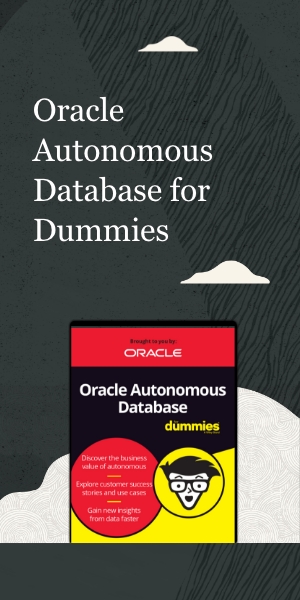 Oracle autonomous database for dummies
Oracle autonomous database for dummiesWhitepaper Freedom from mundane, manual database management
By ITPro Published